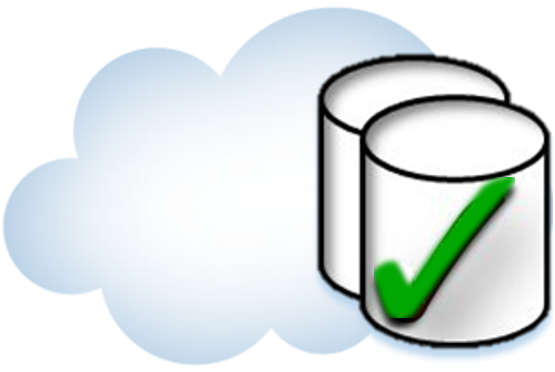Workshop Program
10:15 - 10:20 RDSS 2014 Welcome
10:20 - 11:30 RDSS Keynote
- Data Systems Quality Deserves a
Data-Driven approach
- Seth Eliot, Principal Knowledge Engineer, Microsoft
Abstract:
Data
systems are evolving. Storage is distributed and
so is processing. Massive parallelization enables
us to crunch increasing data sizes reaching past 100s of
petabytes. Many data systems are moving to cloud
services, and even traditional database management
systems are taking on the best aspects of services such
as access to telemetry and system updates. How we assess
the quality of our data management systems/services also
needs to evolve. Data-driven quality (DDQ) is the
key to this evolution.
Testers
have traditionally relied on test results, but the data
sources now available to the tester and the ability to
process these are expanding like never before. DDQ
strategies such as Testing in Production (TiP) are
essential tools for most testers, but the question is
how do teams implement these strategies to benefit their
specific product? The data needed can be big or
small, real-time or delayed, synthetic or organic.
So it is critical that you know what data you need and
understand how much is required. In this talk, you will
learn about the latest tools and techniques used at
Microsoft to get insights from this data about product
quality. Seth will take you through the critical
thinking and framing to understand how data-driven
quality can benefit your product and team. He will
then describe a roadmap for how teams can implement a
data-driven quality strategy and take their testing to
the next level.
Speaker's Bio:
Seth Eliot
is Principal Knowledge Engineer for Microsoft Test
Excellence focusing on driving best practices for
services and cloud development/testing across the
company. He previously was Senior Test Manager,
most recently for the team solving exabyte storage and
data processing challenges for Bing, and before that
enabling developers to innovate by testing new ideas
quickly with users “in production” with the Microsoft
Experimentation Platform. Testing in Production (TiP),
software processes, cloud computing, and other topics
are ruminated upon at Seth's blog at
http://bit.ly/seth_qa
and on Twitter (@setheliot). Prior to Microsoft, Seth
applied his experience at delivering high quality
software services at Amazon.com where he led the Digital
QA team to release Amazon MP3 download, Amazon Instant
Video Streaming, and Kindle Services.
11:30 - 12:00 Paper Session I
- Continuous
performance testing for SAP HANA
- Alexander Boehm (SAP AG), Kim-Thomas Rehmann
(SAP AG), Alexander Boehm (SAP AG), Dong Hun Lee
(SAP AG), Joerg Wiemers (SAP AG)
- Alexander Boehm (SAP AG), Kim-Thomas Rehmann
(SAP AG), Alexander Boehm (SAP AG), Dong Hun Lee
(SAP AG), Joerg Wiemers (SAP AG)
12:00 - 13:45 Lunch break
13:45 - 14:45 Paper Session II
- Extensions of BG for
Testing and Benchmarking Alternative
Implementations of Feed Following
- Sumita Barahmand (USC), Shahram
Ghandeharizadeh (USC), Dobromir Montauk (Google,
Inc)
- Sumita Barahmand (USC), Shahram
Ghandeharizadeh (USC), Dobromir Montauk (Google,
Inc)
- Towards the
Implementation of Bug-Free Database Applications: A
Formal Approach
- Iman Saleh (University of Miami), Gregory Kulczycki (Virginia Tech), M. Brian Blake (University of Miami)
14:45 - 15:00 Break
15:00 - 16:00 Paper Session III
- Deployment-Aware Index
Tuning
- Quoc Trung Tran (NUS),Ivo Jimenez, (UC Santa
Cruz), Rui Wang (UC Santa Cruz), Neoklis
Polyzotis (UC Santa Cruz)
- Quoc Trung Tran (NUS),Ivo Jimenez, (UC Santa
Cruz), Rui Wang (UC Santa Cruz), Neoklis
Polyzotis (UC Santa Cruz)
- An empirical analysis
of database recovery costs
- Caetano Sauer (University of Kaiserslautern), Goetz Graefe (HP Labs), Theo Härder (University of Kaierslautern)
16:10 - 16:15 Closing Remarks
Invited Talk <cancelled>
- Building reliable large-scale
distributed systems at scale
-
Khawaja Shams, Amazon Web Services, NoSQL
-
Khawaja Shams, Amazon Web Services, NoSQL
Abstract:
Amazon’s Dynamo paper started a
revolution in distributed systems and the world of NoSQL
databases. The contributions from this paper are still
impacting the design and practices of some of the
world’s largest distributed systems, including those at
Amazon.com and beyond.
We will go over the journey from
relational databases to Dynamo to DynamoDB and what we
learned along the way.
While the distributed systems at
AWS are built on core principles of distributed system
design for consensus, verification, and
scaling, translating theory into real production systems
requires serious engineering effort and some key
innovations. We will discuss the bruises we proudly
earned along the way and the instrumental real world
lessons that helped us transform theoretically sound
systems into production services like DynamoDB. These
insights include techniques for mitigating failures by
limiting the blast radius of individual system
components, leveraging eventual consistency while also
applying consistency wherever it is appropriate,
simulating failures (such as network partitions or
datacenter failures) that have been proven in practice,
and how we’ve used core distributed systems fundamentals
to build highly scalable, performant, durable,
and resilient systems. We’ll share the fundamental
tenets that define DynamoDB, SQS, and SNS as truly
Internet-scale services.
Speaker's bio:
Khawaja Shams, Head of Engineering for NoSQL at Amazon Web Services. He is a passionate distributed systems engineer, loves to code, and all it takes to distract him is a refreshing discussion around coding a new distributed systems app. Together, Swami and Khawaja are on a mission to redefine NoSQL, again! Khawaja also serves as the Technical Assistant to Charlie Bell, VP of Utility Computing at AWS. Prior to joining Amazon, Khawaja led the Data Services team at NASA Jet Propulsion Laboratory, where he owned distributed systems for tactical operations of dozens of missions across NASA including the Curiosity Mars rover, Voyager, Deep Space Network, Cassini, and International Space Station. Khawaja was one of the key leaders influencing cloud adoption across NASA and advised multiple government agencies and enterprises on Cloud Computing. Khawaja owned development of the data processing pipelines for all Mars images as they are beamed backed to earth and pushed out to global community of scientist, operators, as well as the public.

